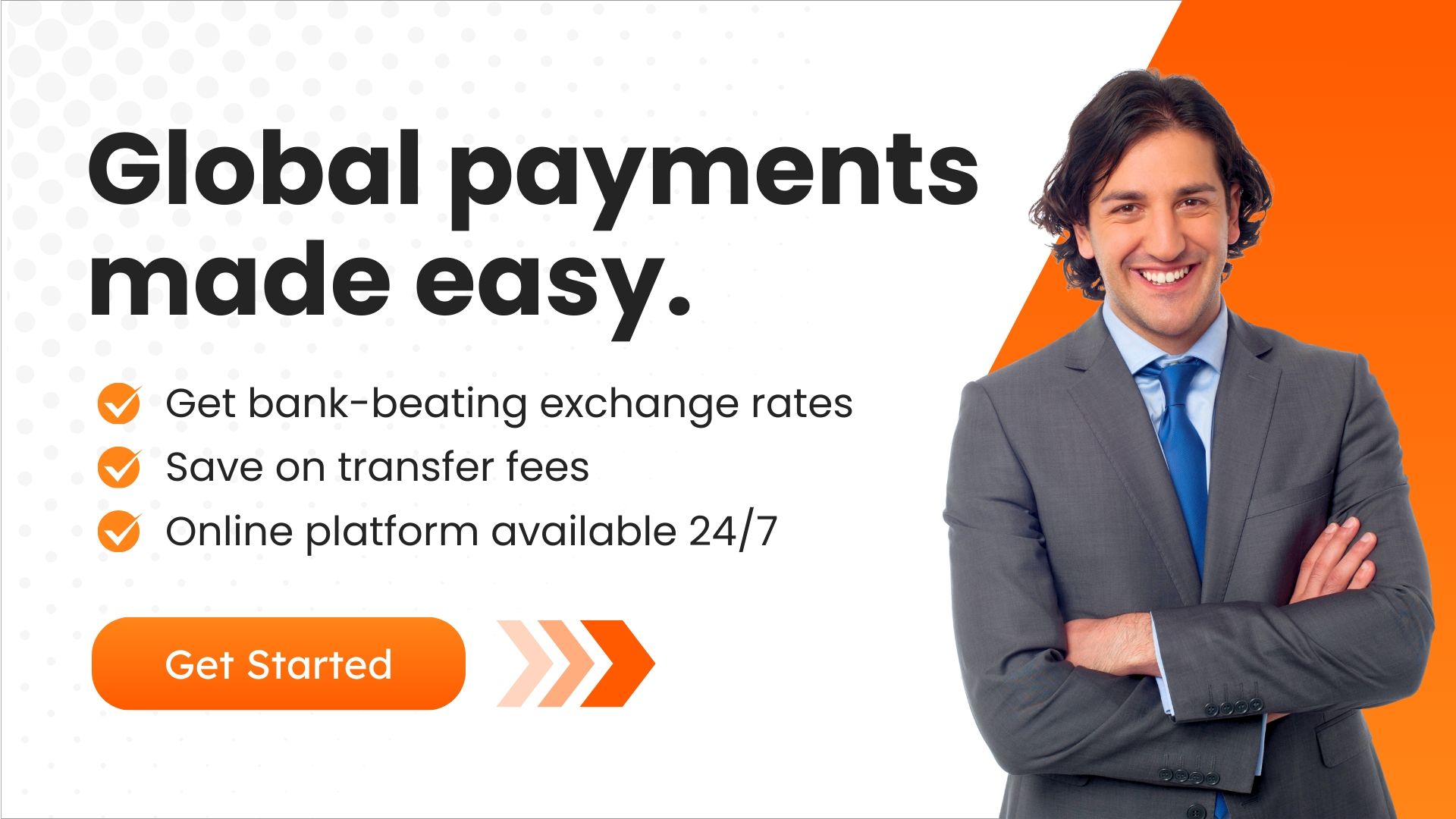The Hidden Costs of Cross-Border Payments - Strategies for Controlling Overseas Payments Costs
In today's global marketplace, B2B international money transfer is essential for businesses to stay competitive. Whether you're paying suppliers, accepting customer payments, or managing cash flow across multiple currencies and regions, efficient cross-border payment solutions are more critical than ever. However, many businesses remain unaware of the hidden costs associated with traditional international payment methods. In this article, we explore these hidden transaction costs and provide actionable strategies to help businesses manage payment expenses, reduce cross-border transfer costs, and optimize their cross-border payment processes effectively.
The challenge of slow settlements
One of the well-known challenges of cross-border payments is the slow settlement process. In some cases, the physical shipment of goods can arrive faster than the payment for those goods, which disrupts cash flow and creates unnecessary delays. This delay in payment impacts cash flow, creates uncertainty, and can strain business relationships. This delay can also cause issues with financial planning, as businesses may struggle to reconcile payment cycles and manage their liquidity. Delays can result in additional interest charges for businesses that rely on working capital to maintain operations. To avoid these challenges, businesses need to explore alternative solutions that offer faster and more efficient cross-border payments, such as digital payment systems or blockchain technology. These technologies offer real-time transactions, improving operational efficiency. The rise of digital payments and blockchain technology has accelerated solutions that can drastically reduce these delays, helping businesses stay competitive and agile in the global marketplace.

Hidden costs of traditional cross-border payments
Traditional cross-border payment methods often come with high fees and hidden foreign exchange costs that can significantly erode profit margins. Banks and payment processors typically charge high transaction fees and apply hidden exchange rate margins, ranging from 1.5% to 7.5% of the transaction value. These hidden costs add up quickly, leading to substantial financial losses. For example, a business transferring $100,000 could lose thousands of dollars due to fees and exchange rate markups.
In addition, the traditional payment process is often time-consuming and inefficient, leading to delays, missed deadlines, and higher supplier costs. These additional expenses can negatively impact the bottom line, especially for small and medium-sized businesses. By exploring alternative payment solutions, businesses can reduce fees, streamline the process, and improve profitability and operational efficiency.
Common hidden costs:
Transaction Fees (Direct and Indirect Charges): Cross-border payments typically involve direct transaction fees and indirect charges. Transaction fees can vary depending on the institution and corridor used, and they can be as high as $50 per transaction or more. In addition to these fees, businesses often face indirect costs such as unfavourable exchange rates, which can significantly inflate the transaction amount. These costs may not be immediately visible, making it hard to track their financial impact.
Exchange Rate Margins: Banks and payment providers often mark up exchange rates to generate additional profit. Even a small margin, such as 0.5%, can accumulate over multiple transactions, significantly eroding business profitability. For instance, a 1% exchange rate markup can cost businesses hundreds or thousands of dollars over time. Many businesses fail to notice the impact of these margins until they see the accumulated losses in their accounts. Being aware of this hidden cost is essential for reducing financial leakage in cross-border transactions.
Intermediary and Receiving Bank Fees: Cross-border payments often involve intermediary banks that facilitate transactions between the sender and receiver. These banks charge service fees depending on the transaction's complexity and the number of intermediaries involved. Payments passing through multiple banks can incur additional fees at each stage, inflating the overall cost, especially for large transactions. Moreover, the receiving bank may also charge a fee to process international payments, further reducing the amount received. Understanding these intermediary charges is crucial for businesses to assess the full cost of their international payments.
Time-Related Costs (Delays and Their Implications): Time is money, and delays in cross-border payments can result in lost opportunities, missed discounts, and strained supplier relationships. Late payments may erode trust from suppliers, leading to less favourable payment terms or disruptions in the supply chain. Additionally, currency fluctuations during these delays can affect the cost of payments, especially when exchange rates change between when the transaction is initiated and when it is completed.
Delayed payments can also cause businesses to miss out on volume discounts, early payment incentives, or favourable contract terms. To minimize these risks, businesses should choose payment providers that offer faster, more reliable services to ensure timely payments and reduce negative impacts on supplier relationships.
Things to Consider and Pitfalls to Avoid
Businesses should consider various factors to avoid costly mistakes when making cross-border payments. First, pay attention to the total cost of the transaction, including direct fees and exchange rate margins. Even a small difference in exchange rates can add up to significant costs. It is essential to evaluate the number of intermediary banks involved in the transaction, as each can add additional fees that increase the overall cost of the payment. A transparent and efficient payment provider can reduce these hidden fees and streamline payment processes, ensuring businesses retain more of their funds. Another common pitfall is failing to optimize payment timing. Payment delays disrupt cash flow and lead to higher costs due to fluctuating exchange rates. To avoid these pitfalls, businesses should use payment providers that offer transparent pricing, competitive exchange rates, and faster processing times to minimize both direct and indirect costs.
Strategies to minimize costs
Negotiate better rates with banks
Don't hesitate to negotiate better rates with your bank for cross-border payments. Long-term banking relationships can help businesses secure discounts or reduced fees, especially if they are regular clients or offer significant transaction volume. By discussing your business's payment needs with your bank, you may be able to access preferential rates or explore customized solutions. Banks may be willing to provide more favourable terms to retain your business, especially if you're dealing with substantial sums of money. Businesses should also consider diversifying their payment options to ensure they are not over-relying on one provider, which can limit bargaining power. Don't hesitate to ask for better rates or renegotiate terms periodically.
Consolidate your cross-border payments
Consolidating international payments into fewer, larger transactions can reduce overall costs. Fewer transactions mean fewer fees, potentially better exchange rates, and a reduction in the number of intermediary banks involved. This strategy can be particularly effective for businesses making frequent, smaller payments. Consolidating payments also simplifies accounting, reducing the administrative burden and associated costs of managing numerous small transactions. By grouping payments into a single larger transaction, businesses can save time and money, making their payment processes more efficient and cost-effective in the long run. Moreover, consolidating payments enables businesses to negotiate better exchange rates due to the larger amounts being transferred.
Stay informed on regulatory changes
Cross-border payment regulations are constantly evolving, and staying up to date on these changes ensures that businesses remain compliant and avoid penalties. New compliance requirements or restrictions can significantly impact the cost of making cross-border payments, and businesses that fail to stay informed risk incurring additional fees or delays in processing payments. Proactively managing compliance helps businesses avoid unexpected costs and penalties and ensures that their cross-border payment processes remain efficient and risk-free. By monitoring global regulatory trends, businesses can anticipate and adapt to these changes without disrupting their operations. Tracking regulations in different regions is essential to ensure smooth payments across multiple borders.
Use specialized payment providers
Specialized payment providers, such as fintech companies and foreign exchange services, often offer more competitive rates and lower fees for international transactions. These providers generally offer more transparency, better exchange rates, and streamlined processes than traditional banks, helping businesses save money on cross-border payments. Specialized payment solutions like MTFX can offer real-time currency exchange rates, faster processing times, and more flexibility in payment methods. Businesses can benefit from lower costs, improved service, and greater control over their international transactions by choosing the right specialized payment provider. This flexibility enables businesses to adjust payments to meet their needs and offers greater control over their currency conversion costs.
Benefits of choosing the right cross-border payment solution
Increased profitability potential
By utilizing innovative cross-border payment solutions, businesses can reduce the hidden fees in cross-border payments and foreign exchange costs associated with traditional methods. This can directly increase net income and allow companies to reinvest savings into growth opportunities. Improved visibility into payment processes can also make financial management more efficient, reducing the time spent tracking payments and optimizing cash flow. Additionally, improved reporting and accounting practices can provide businesses with greater insights into their international payment strategies, allowing them to identify further opportunities for cost savings. Better cash flow and payment process management ensure businesses are positioned to grow without unnecessary financial constraints.
Reduced margin for your customers
Lower cross-border payment costs give businesses the ability to offer more attractive prices to customers. By passing savings on to customers, companies can gain a competitive edge in global markets and drive higher demand for their products and services. Finding the optimal price point has never been more crucial for maximizing online sales and global profitability, especially as businesses strive to stay ahead of the competition in an increasingly price-sensitive environment. Competitive pricing, enabled by lower transaction costs, can also help businesses secure more favourable supplier agreements and negotiate better terms. This gives businesses a more flexible and resilient pricing strategy.
Stronger supplier relations
Efficient, timely payments can help businesses build stronger relationships with their suppliers. Paying suppliers faster demonstrates reliability and can lead to better terms, discounts, and enhanced loyalty. This reliability in payment also helps businesses establish a positive reputation, potentially leading to priority access to stock or better service terms. With reduced payment delays, businesses can leverage stronger supplier networks and access better pricing options, enhancing their competitiveness in the marketplace. Furthermore, by paying suppliers on time, businesses reduce the risk of supply chain interruptions, maintaining smoother operations. Reliable payment practices also result in more favourable credit terms with suppliers, helping to strengthen the supply chain.
How can MTFX help with cross-border payments?
The best way for businesses to manage currency risk is by implementing effective hedging strategies. MTFX offers comprehensive risk management solutions, providing access to better exchange rates, real-time market insights, and customized strategies tailored to meet the unique needs of your international transactions. By partnering with MTFX, businesses can protect themselves against currency fluctuations, boost their bottom line, and achieve significant cost savings on cross-border payments. Here’s how MTFX can help your business stay ahead in the global marketplace:
Access to bank-beating foreign exchange rates
MTFX provides businesses with highly competitive foreign exchange rates for currency pairs like CAD to USD, offering better value than rates typically available to the public or smaller businesses. Leveraging deep market expertise, MTFX ensures that businesses secure the best possible rates, leading to significant cost savings on every transaction. Unlike traditional banks and payment providers that impose high margins, MTFX keeps international payments cost-effective. This allows businesses to optimize currency conversion costs, minimize fees, and maximize financial efficiency.
Enable strategic decision-making
With MTFX's real-time market insights and forecasts, businesses can make informed decisions and optimize payment strategies. By staying up to date with global currency markets, businesses can minimize risks associated with currency fluctuations and strategically manage their cross-border payments. Our detailed reporting and market analysis also provide actionable insights into global trends, helping businesses confidently navigate market volatility. By providing transparent data and insights, MTFX allows businesses to plan and execute payment strategies with precision.
Reduced foreign exchange risk exposure
Currency volatility is a significant risk for businesses engaging in international trade. MTFX helps businesses mitigate this risk with hedging strategies, offering stability and predictability in uncertain economic conditions. Through tailored hedging solutions, businesses can lock in exchange rates and protect themselves against unfavourable market movements, ensuring greater financial stability in their cross-border transactions. This security allows businesses to focus on their core operations without worrying about currency conversion costs and foreign exchange risks.
Customized foreign exchange solutions
Every business is unique, and so are its cross-border payment needs. MTFX tailors its solutions to fit specific business models or industries, ensuring the most efficient, cost-effective approach to managing currency risks. Our customized services help businesses streamline payment processes and achieve financial goals while ensuring compliance with international regulations. By understanding the intricacies of each business, MTFX can offer bespoke solutions that align with long-term objectives, making cross-border payments more manageable.

Optimize cross-border payments for business success
Cross-border payments are vital for businesses operating internationally, but the hidden costs of traditional payment methods can erode profits and strain supplier relationships. By exploring innovative solutions, businesses can access better rates, mitigate currency risks, make strategic decisions, and improve operational efficiency. Choosing the right cross-border payment provider is essential for optimizing payment processes, saving money, and gaining a competitive advantage in the global marketplace.
Create an account and start reducing your cross-border payment costs with MTFX and stay ahead in global markets.
FAQs
1. What are cross-border payments?
Cross-border payments refer to the transfer of money or financial transactions between entities or individuals in different countries. This could include supplier payments, goods or services, or international money transfers. Businesses often use cross-border payments for transactions with international clients or partners.
2. What are the hidden costs of international payments?
The hidden costs of international payments include transaction fees, exchange rate margins, intermediary bank fees, receiving bank charges, and delays in payment processing. These costs can accumulate quickly and impact profitability, so choosing a cost-effective and transparent payment solution is crucial.
3. How do exchange rate margins impact my business?
Exchange rate margins refer to the difference between the market exchange rate and the rate offered by banks or payment providers. A marked-up exchange rate means businesses will get fewer funds when converting currency. Over time, even small margins can add up to significant financial losses, especially for businesses that engage in frequent cross-border transactions.
4. How can I reduce transaction fees for cross-border payments?
To reduce transaction fees, businesses can negotiate better rates with their banks, consolidate payments into smaller, larger transactions, and consider using specialized payment providers offering more competitive rates and lower fees than traditional banks. Additionally, using a provider with transparent pricing can help avoid hidden fees.
5. Why is the speed of payment processing important?
The speed of payment processing is critical because delays in cross-border payments can result in missed discounts, lost opportunities, and strained supplier relationships. Slow payments can lead to financial challenges, as businesses may have trouble managing liquidity and reconciling payment cycles. Fast and efficient payments ensure businesses maintain strong relationships with suppliers and partners while improving cash flow.
6. How can MTFX help my business with cross-border payments?
MTFX offers competitive foreign exchange rates, real-time market insights, risk management strategies, and customized solutions tailored to the specific needs of your business. With MTFX, businesses can access better rates, mitigate currency risk, optimize payment strategies, and reduce the hidden costs associated with traditional payment methods. Our solutions are designed to help you save money and streamline cross-border transactions.
7. What are the benefits of using a specialized payment provider like MTFX?
Specialized payment providers like MTFX offer better transparency, faster processing times, and more competitive exchange rates than traditional banks. They help businesses reduce transaction fees, avoid hidden charges, and ensure that payments are made quickly and efficiently, ultimately saving money and strengthening supplier relationships.
8. How can I protect my business from foreign exchange risk?
MTFX helps businesses protect against foreign exchange risk by offering hedging strategies that lock in exchange rates, ensuring stability in international transactions. By mitigating currency fluctuations, businesses can confidently plan their financial strategies, reducing uncertainty and protecting profits from adverse market conditions.
9. What are the best strategies for minimizing overseas payment costs?
The best strategies for minimizing overseas payment costs include consolidating payments into smaller, larger transactions, negotiating better rates with banks, and using specialized payment providers offering competitive exchange rates and lower fees.
10. What should businesses consider when making international payments?
Businesses should consider the total cost of the transaction, including transaction fees, exchange rate margins, and time-related costs such as delays. Choosing a payment provider that offers transparency and competitive rates is important to avoid hidden costs.
11. Why do cross-border payments have high fees?
Cross-border payments often have high fees due to transaction fees, intermediary bank charges, and marked-up exchange rates. These costs can be significant, especially for small businesses without the bargaining power to negotiate lower rates.
12. Are there any services that offer low-cost cross-border payments?
Yes, services like MTFX provide low-cost cross-border payments by offering competitive exchange rates, lower transaction fees, and faster processing times. Specialized payment providers can help businesses save on transaction costs and improve payment efficiency.

Keep updated
Make informed decisions
Access tools to help you track, manage, and simplify your global payments.
Currency market updates
Track key currency movements and plan your transfers with confidence.
Create an account today
Start today, and let us take the hassle out of overseas transfers.
